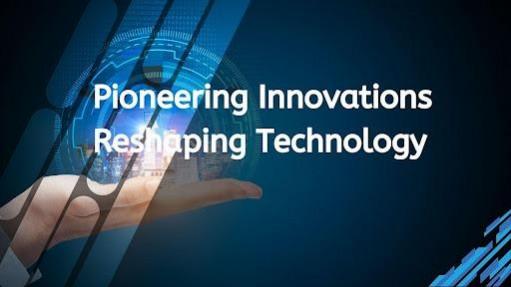
The rapid pace of technological advancement continues to redefine industries, transforming traditional practices with groundbreaking innovations. Gaurav Yadav a distinguished expert in the field, explores the latest developments shaping the future of technology. His insights illuminate how these advancements are revolutionizing efficiency, security, and user experience.
Revolutionizing Computational Capabilities
The evolution of computing technology is driving unprecedented levels of processing power and efficiency. The latest innovations in hardware architecture and software optimization are enhancing computational speeds, enabling real-time data processing for a range of applications. These advancements are significantly impacting sectors that rely on high-performance computing, from artificial intelligence to data analytics, pushing the boundaries of what machines can achieve.
Quantum computing represents the next frontier, with potential to solve complex problems traditional computers cannot address. Edge computing is bringing processing power closer to data sources, reducing latency and enabling IoT applications. Neuromorphic chips mimicking brain architecture are improving AI capabilities, while specialized ASICs offer tailored performance for specific tasks. These developments are transforming industries and creating new possibilities for scientific discovery and technological innovation.
Enhancing Connectivity and Communication
The development of next-generation network technologies is reshaping global connectivity. With faster data transfer rates, reduced latency, and improved bandwidth allocation, communication infrastructure is reaching new heights. These improvements facilitate seamless digital interactions, supporting emerging applications in remote work, smart cities, and autonomous systems. As connectivity continues to advance, it is enabling a more integrated and responsive digital ecosystem.
The deployment of 6G networks promises to deliver theoretical speeds up to 100 times faster than 5G, revolutionizing how devices communicate. Satellite internet constellations are extending high-speed connectivity to previously underserved regions, bridging the digital divide. Network slicing technologies allow customized performance profiles for different applications, optimizing resource allocation. Advanced mesh networks create self-healing, decentralized infrastructures that enhance resilience against outages. Together, these innovations are fostering unprecedented levels of global digital collaboration, enabling real-time holographic communications, and laying the groundwork for fully immersive extended reality experiences.
Transforming Data Security Measures
Cybersecurity innovations are addressing the growing threats posed by digital vulnerabilities. Advanced encryption techniques, AI-driven threat detection, and decentralized security frameworks are redefining how data is protected. These developments ensure greater resilience against cyberattacks, safeguarding sensitive information in an era where digital transactions and data exchanges are more prevalent than ever.
Optimizing Energy Efficiency in Technology
Sustainability remains a critical focus in technological advancements, with energy-efficient solutions becoming a priority. Breakthroughs in low-power computing, renewable energy integration, and smart resource management are minimizing the environmental impact of modern technology. These innovations contribute to reducing energy consumption while maintaining high performance, aligning with global sustainability efforts.
Advancing Automation and AI Integration
Artificial intelligence and automation continue to revolutionize industries by streamlining processes and enhancing decision-making. From machine learning algorithms to robotic automation, these technologies are improving productivity, reducing human intervention, and increasing operational efficiency. As AI systems become more sophisticated, they are unlocking new possibilities in areas such as healthcare, manufacturing, and customer service.
Elevating User Experience with Human-Centric Design
Technological advancements are not only enhancing functionality but also prioritizing user experience. Intuitive interfaces, adaptive systems, and personalized interactions are redefining how individuals engage with digital solutions. By focusing on human-centric design principles, technology is becoming more accessible, user-friendly, and efficient in meeting diverse consumer needs. Emotional intelligence and contextual awareness are elevating technology's responsiveness to human behaviors and preferences.
In conclusion,innovation remains the driving force behind technological progress, reshaping industries and improving lives. The continuous evolution of computational power, connectivity, security, sustainability, automation, and user experience is setting the stage for a future defined by efficiency and intelligence. As Gaurav Yadav highlights, these groundbreaking developments are paving the way for a more advanced and interconnected world.















